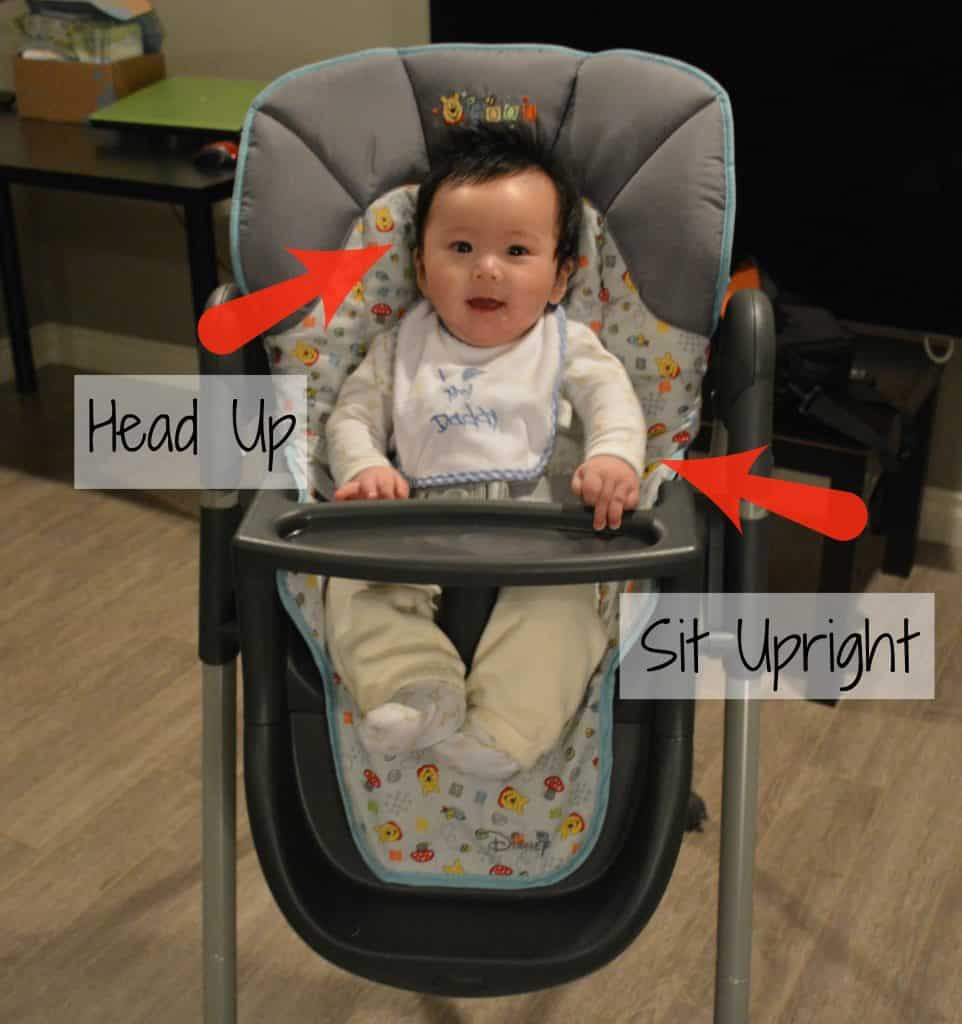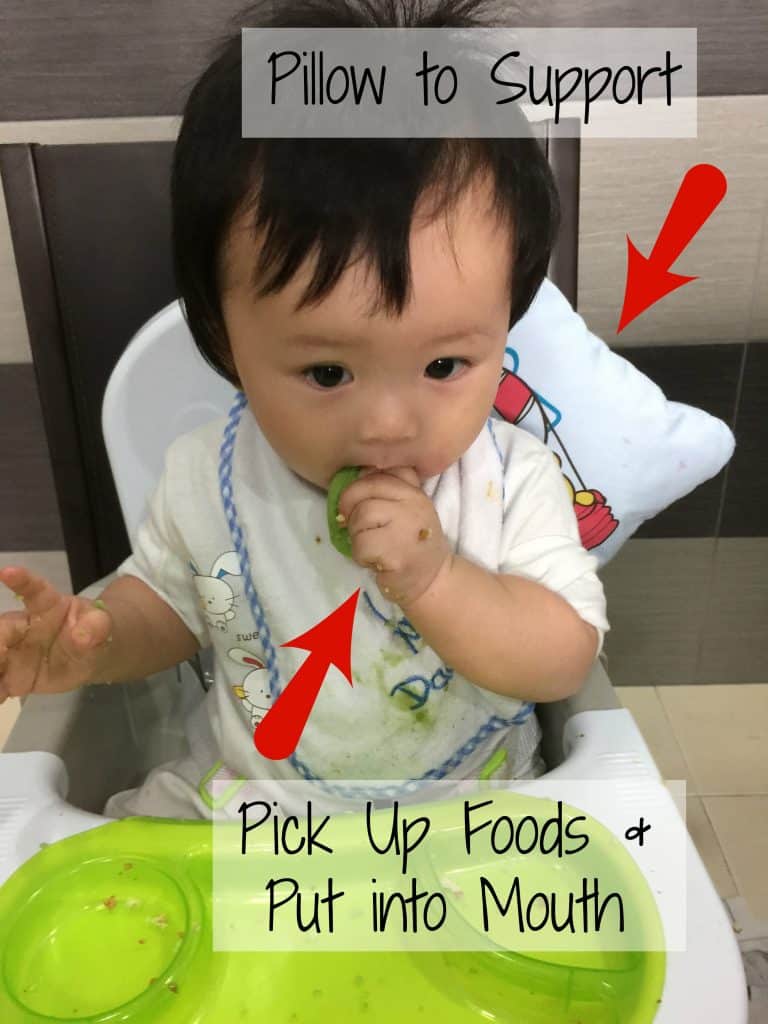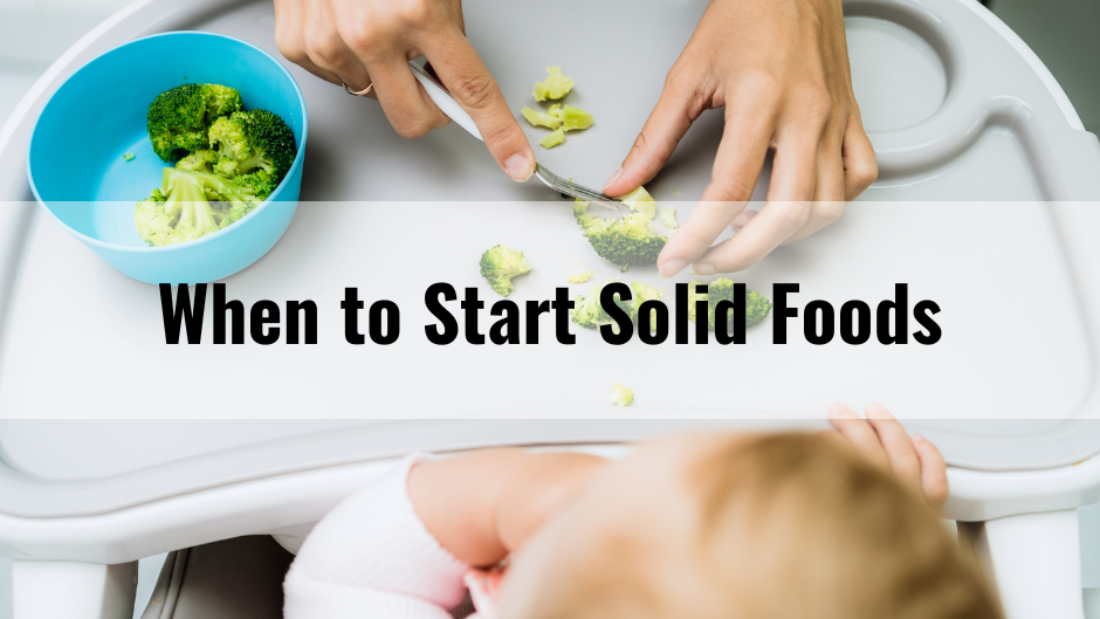Lately, I’ve come across many questions from parents wondering about the right age to start introducing solid foods. Some experts and older guidelines suggest introducing solids between 4 and 6 months, while certain parenting websites say 4 months. Sometimes, this advice even comes from a doctor or other health professionals. Many of us, especially those raised in the 80’s, may have started eating solid foods as early as 2 to 4 months because our parents followed older recommendations. As a first time mom, I totally understand the eagerness to start solids – especially with friends and family sharing plenty of “advices” and “opinions”. It’s easy to start thinking, “maybe 4 months is the right time!” With so many conflicting recommendations, it’s no wonder today’s parents are feeling confused.
WHY DO BABIES NEED SOLIDS?
Introducing solid foods to babies isn’t just about adding variety; it’s essential for both nutritional and developmental reasons. Breast milk or formula will still be a main source of nutrition during the first year, but starting solids around 6 months helps meet growing needs that milk alone can’t fulfill.
1. Nutritional Reasons
- Iron Needs: By 7 months, babies’ natural iron stores begin to deplete, and they need iron-rich foods to support healthy growth and brain development.
- Critical Nutrients: Beyond iron, there’s an increased need for other key nutrients like protein, zinc, omega-3 fatty acids, and additional energy to fuel their development and growing curiosity.
2. Developmental Reasons
- Biting and Chewing: Starting solids helps babies practice essential skills, like biting and chewing, which play a big role in speech and jaw development.
- Oral and Motor Skills: Eating solids encourages the development of muscles around the mouth and fine motor skills as babies learn to pick up food, bring it to their mouths, and chew.
ARE YOU STARTING EARLY?
Here are some common reasons parents introduce solids before the 6-month mark:
- My baby is too big
- My baby is too small and tiny
- My baby seems hungry (increased breastfeeding demand)
- My baby wakes up multiple times a night
- My doctor recommended starting solids
- My baby wanted the food I was eating
- I wanted to offer something (iron rich foods) alongside breast milk or formula
For those common reasons parents consider introducing solids early, it’s important to remember that breast milk (or formula) provides more calories and far more essential nutrients than any solid food can at this stage. Breast milk is designed to meet a baby’s needs perfectly, offering a balance of calories, fats, proteins, and vitamins that’s challenging to match with solids. Even if your baby is showing increased hunger, breast milk or formula is usually enough to satisfy them until they reach around 6 months.
In light of all this, it’s completely understandable why so many parents are questioning when to begin solids. Next, I’ll dive into why waiting until around 6 months is often best for your baby’s development and health.
TOO EARLY? or TOO LATE?
Starting solids too early—before 4 months (17 weeks)—can pose several health risks. Research shows that introducing solids TOO EARLY can increase the chances of:
- Infections and Digestive Issues: Babies’ digestive systems are still maturing, and introducing solids too soon may cause gastrointestinal discomfort and infections.
- Food Allergies: Introducing certain foods too early can increase the risk of developing food allergies later on.
- Obesity: Early solid feeding can influence long-term eating behaviors, potentially contributing to a higher risk of childhood obesity.
- Kidney Strain: Babies’ kidneys aren’t fully developed in the first few months, and early solids can strain these organs, leading to imbalances in minerals they’re not yet ready to process.
- Reduced Breast Milk Intake: Solids may replace breast milk in the baby’s diet, potentially reducing milk supply and lowering access to the essential nutrients and antibodies breast milk provides.
- Choking Risk: Babies’ swallowing and chewing reflexes are not fully developed before 4 to 6 months, increasing the risk of choking on solid foods.
Waiting too long to introduce solids—beyond 7 months—can present its own set of challenges. By this age, babies start needing additional nutrients that breast milk or formula alone may not fully supply. Research shows that delaying solids past 7 months can increase the risk of:
- Iron Deficiency: Babies’ iron stores begin to deplete around this time, and solids provide essential dietary iron that helps prevent deficiency.
- Food Allergies: Both early and delayed introduction to certain foods are associated with a higher risk of developing allergies.
- Texture Sensitivity and Food Fussiness: Delayed exposure may make it more challenging for babies to accept new textures and flavors, potentially leading to picky eating.
- Difficulty with Essential Nutrients: Waiting too long can mean babies miss out on critical nutrients like iron and zinc, which support growth, brain development, and immune function.
WHAT IS CURRENT RECOMMENDATIONS
Top health organizations recommend introducing solids around 6 months when babies show signs of readiness.
- World Health Organization (WHO)
- Health Canada and Canadian Paediatric Society
- American Academy of Paediatrics (AAP)
- American Academy of Family Physicians
- Australian National Health and Medical Research Council
- The AAP Section on Breastfeeding
- American College of Obstetricians and Gynaecologists
- Academy of Breastfeeding Medicine
These guidelines advocate for exclusive breastfeeding until around 6 months to ensure the digestive system is mature enough to handle solid and to protect against gastrointestinal and respiratory infections (APP 2012, Nylor & Morrow, 2001).
Exclusive breastfeeding or formula feeding for the first 6 months provides all the essential nutrients a baby needs, with breast milk or formula remaining their primary nutrition source until they reach this milestone.
DEVELOPMENT SIGNS FOR READINESS
Watch for SIGNS that your baby is getting ready to start solids:



- Around 6 months of age
- Sitting with minimal support (with pillow or towel)
- Good head and neck control, able to hold head upright and steady
- Bringing hands and toys to their mouth
- Appears interested in food, possibly by reaching for or leaning forward towards food
- Your baby can swallow food (look for loss of the tongue thrust reflex)
GESTATIONAL AGE
It’s important to consider your baby’s gestational age when deciding when to introduce solids. Premature babies may not be neurologically or physically ready for solids until approximately 6 months after their original due date, rather than their birth date. For instance, my elder son, born 2 weeks early, began solids about two weeks after turning 6 months. Similarly, Audrey and Avery, born 4 weeks early, started solids around 6.5 months. Adjusting based on gestational age allows babies to begin solids when their developmental milestones and readiness are more in line with their age-adjusted peers.
What you can do If your baby is showing obvious signs of being ready for solids about 4-6 months?
It’s common for babies around 4 to 5 month to show interest in mealtimes such as reaching for food. However, this curiosity doesn’t necessarily mean they’re ready for solids. In fact, it is part of their normal development to explore by putting objects in their mouths. Here are some ways to involve your baby in mealtimes without introducing solids:
- Include Them at the Table: Let your baby join family meals in a booster seat or high chair. This gets them used to mealtime routines and sitting in their designated seat, preparing them for when it’s time to start solids.
- Provide Safe Utensils: Give your baby spoons, cups, or bowls to play with during mealtimes. This helps them get familiar with eating utensils in a fun and exploratory way.
- Introduce Open Cups: Offering small amounts of water or expressed breast milk (1-3 oz) in an open cup starting at 6 months is considered beneficial. This lets your baby practice drinking skills while engaging at the table without starting on solid foods.
BOTTOM LINE
Most babies are developmentally and physiologically ready to start eating solid foods between 6 and 8 months of age. It’s important to look for signs of readiness rather than strictly following a calendar. Remember, the decision to start solids shouldn’t come from pressure from parents or in-laws but should be based on your baby’s cues.
Baby, Bon Appétit !!
My children love making a mess during mealtime, and that’s perfectly normal! It’s all part of the learning process as he explores new textures and flavors.


As you embark on this exciting journey of introducing solid foods to your little one, remember that patience and observation are key. Every baby is unique, so trust their cues and enjoy the experience of discovering new flavors and textures together.
For more tips, resources, and support on feeding your baby and fostering healthy eating habits, be sure to check out my Instagram. Happy feeding!


Leave A Comment